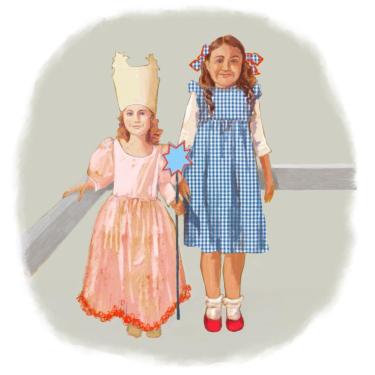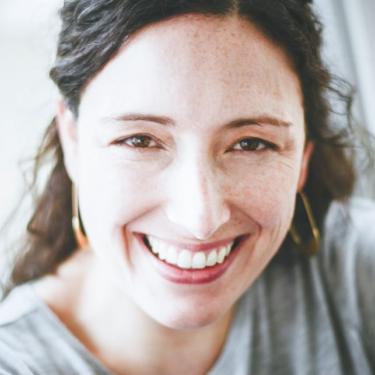
This fall, in the middle of October, our family went to Chicago to see the Broadway production of the musical Wicked. The tickets were purchased as a gift for our daughter’s sixteenth birthday. She is crazy about musicals, and was anticipating this event with the highest expectations. I, on the other hand, went along without any specific hopes for the show.
This made it all the more magical when I had what I think was an encounter with true art. The story, the characters, and the music swept up my imagination, and weeks later, I was still listening to the soundtrack of Wicked, and thinking about its themes. I felt a bit sheepish about this, but my younger daughter said, “That’s ok, mom. It means you have a true musical obsession.” Apparently that’s what the kids call it these days.
As I pondered the themes of Wicked, I thought mostly about the particular kinds of evil that await us—and await my kids—in adulthood. Sometimes, these are blatant evils, as in the case of a devastating shooting that took place recently at a school my family was connected to. These are horrific enough. And yet, there are also more subtle, white collar, hidden evils that are wrought upon us in seemingly benign and trustworthy contexts, such as a toxic workplace or a spiritually abusive faith community.
These are the kinds of evils I thought about after seeing this very contemporary re-telling of the Oz story. As Christians, we are called to mature into the kind of people who are not overcome by evil. And yet, there have been many times, when I have felt nothing if not overcome—laid flat—by an encounter with evil. News of a school shooting, to give just one example, can cause me to spiral into despondency. The one that took place among a community our family has personal ties to, very recently, made getting out of bed and working a normal work day a struggle for many days.
I think that many of us are dealing with the effects of situations we have lived through that may not have left a visible wound, but are no less insidious in their power to diminish our faith, hope, and love. I found Wicked to be a poignant allegory for what we are up against as we make our way through contemporary life, navigating the tension between our need for belonging and livelihood among communities, institutions, or individuals who are not always safe or trustworthy. And yet, we are called to not only not be overcome by evil, but to overcome evil with good, again and again.
As I raise two girls in this context, it is tempting to want to find a way back to the supposedly simpler times of Dorothy a la Judy Garland—an Oz that my girls loved so much when they were little, that they dressed up as characters for Halloween one year. But the truth is that such an Oz never existed. This was driven home to me recently when I suggested to my daughters that we watch the Wizard of Oz for a cozy movie night. My oldest daughter surprised me by saying: “Did you know that Judy Garland was forced to practically starve herself on the set of the Wizard of Oz, and that the Tin Man was poisoned by the paint they used to make him silver?” I agreed that these were repugnant realities, while inwardly sighing at my own adult resignation to the fact that often good and evil are often too intermingled to sort out. If we stop to analyze the set of every movie, or the supply chain of most of the goods we consume, we might never watch another movie, or purchase another item ever again. In my daughter’s youthful moral umbridge, I see myself, and I also see earnest, authentic, ethically-oriented Elphaba. I know I am raising children in a world where even one’s good qualities and noble intentions can be weaponized or distorted by wicked people and systems.
I believe that through prayer and perseverance, and of course healing, we learn to integrate the reality of evil in this world, as our faith matures. This is a lifelong process and we will be knocked down and get back up again many times.
I like to think that if Elphaba could find the human comfort of authentic love and friendship in the harsh, secular world of Wicked, then how much more can we as Orthodox Christians also find the sustenance we need in Christ, the sacramental life of the Church, each other, and the cloud of witnesses that are the saints. When, in Wicked, the stage darkens and the spotlight shrinks to a small circle of light around two humans who find safety with each other, I am reminded of the icon of the Theotokos and Child. To overcome evil and find sanctuary, we must become simple and return to quiet intimacy with Christ again and again.
Julia Wickes lives in South Bend, Indiana, where she is director of communications for Trinity School at Greenlawn, mother to two teen girls, owner of a miniature poodle named Ramona, and wife of a Syriac scholar and Notre Dame professor. She has always loved sewing, but more recently has directed her attention toward acquiring power tools and building simple but practical things with wood. She holds a master of arts in theology from St. Vladimir's Orthodox Theological Seminary.



